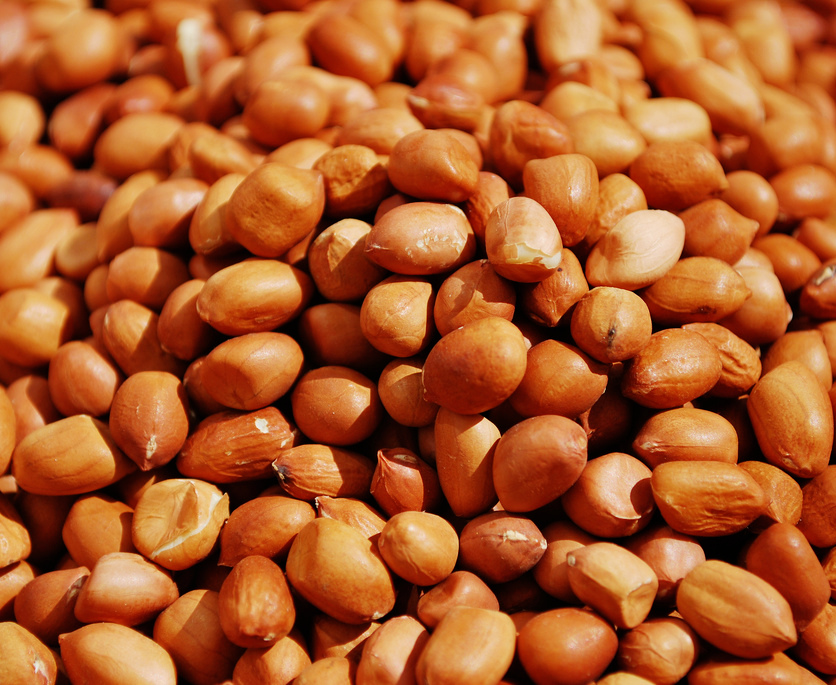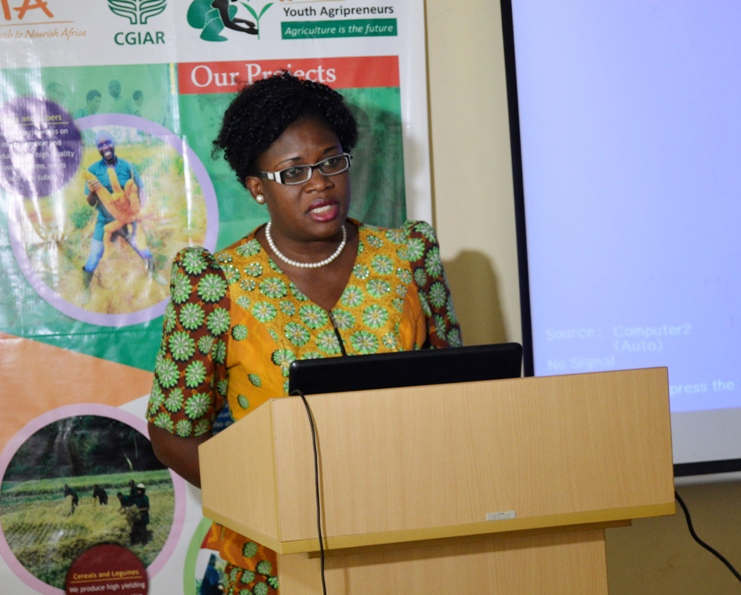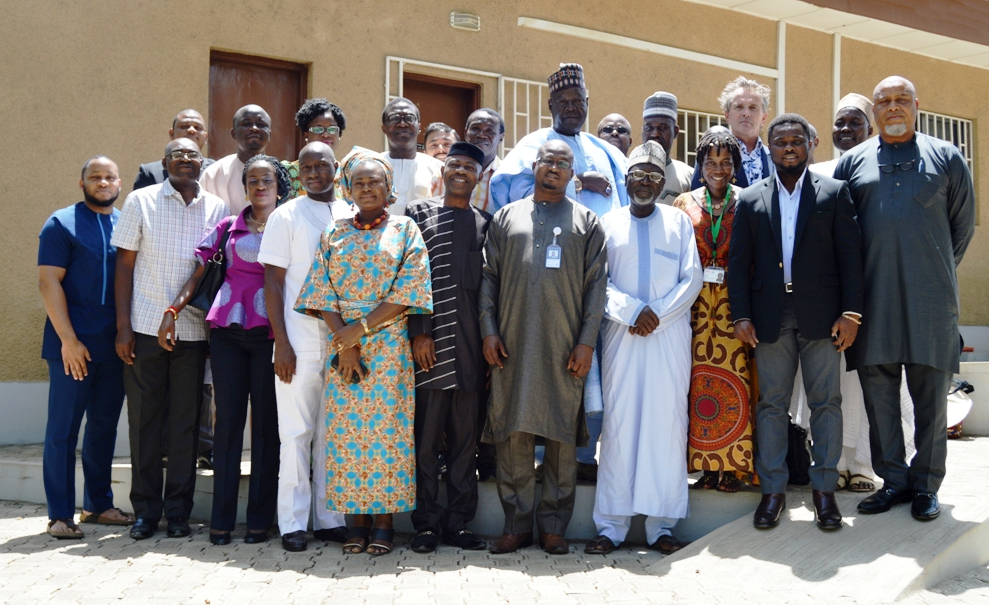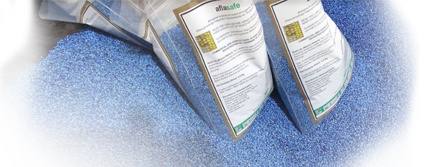
Aflasafe-aided green alternative to diversify Nigeria’s exports through aflatoxin-safe groundnuts
What comes to mind when you hear ‘OPEC’? Wealth-bringing oil, sandy swathes graced with camels and perhaps a pyramid here and there? You’re doing pretty well. But when it comes to Nigeria, the term has a second meaning that’s got nothing to do with petroleum and everything to do with groundnuts: ATTC’s Export-Oriented Production Cluster initiative, or OPEC for short. It promises aflatoxin-safe groundnuts galore and even the return of the groundnut pyramids, although no camels as far as we know.
So what is OPEC all about? Cooperation is key: OPEC is an ATTC-led collaborative initiative created by several organisations with the aim of working together to increase the productivity and quality of Nigeria’s groundnuts, in particular to make more and better groundnuts available for export.
The initiative began on 17th March 2017 with the signing of a memorandum of understanding (MoU) between IITA, the Nigerian Export Promotion Council (NEPC), and the National Groundnut Producers and Processors Association of Nigeria (NGROPPMAN). Then, on 30th June, the Jigawa State Agricultural and Rural Development Agency (JARDA), and international company, Olam Nigeria Limited, also joined the collaboration, in order to implement and further enhance OPEC in Nigeria’s Jigawa State.

Cutting out aflatoxin contamination is essential to getting groundnuts up to scratch for export. Currently, Nigeria’s groundnuts often contain high levels of aflatoxin, above the standards allowed by strictly controlled markets such as the European Union or the United States. Such contaminated groundnuts have little value for export – as well as being dangerous to eat at home – and even those groundnuts that are safe are hard to export due to a reputation for contamination. However, foreign buyers such as confectionery and snack companies have a high demand for groundnuts and are keen to source from West Africa, meaning that there is a lucrative export market ready and waiting as soon as Nigeria can produce enough groundnuts of reliably high quality to take advantage of it.
OPEC thus contributes directly to Nigeria’s drive to diversify its exports beyond oil (of the petroleum rather than the tasty groundnut kind) to ensure future income. OPEC also contributes to the country’s Green Alternative policy, which aims to revive the agricultural sector both for food security and export.
“The OPEC initiative falls naturally under the mandate of Federal Ministry of Agriculture and Rural Development’s Green Alternative, and strategically under the responsibilities of the inter-ministerial technical committee on zero reject of agricultural commodities,” said Ms Heather R Akanni, Technical Adviser on Quality Control and Standards to the Office of the Honourable Minister of Agriculture, representing the Honourable Minister, Chief Audu Ogbeh, at the signing of the MoU. “The issues of quality assurance, self-sufficiency, wealth creation and development of agricultural exports are close to the heart of our Minister. We must work together to ensure our success in achieving OPEC’s vision for the advancement of Nigeria.”
 Where do pyramids come into play? In fact, the famous non-groundnut OPEC doesn’t include Egypt or its pyramids, but in Nigeria we do have some historic pyramids to boast about – or at least we did. Tourists once flocked to northern Nigerian cities such as Kano to see sacks of groundnuts stacked high into imposing groundnut pyramids, a symbol of plenty and prosperity for Nigeria. The country was a major groundnut exporter and groundnuts were an important source of income. In the 1970s, however, as focus shifted from agriculture to oil and importers started taking more notice of aflatoxin contamination, the pyramids began to disappear. Groundnut exports plummeted, from a high of 291,000 tonnes in 1970 to just 1,983 tonnes in 2013.
Where do pyramids come into play? In fact, the famous non-groundnut OPEC doesn’t include Egypt or its pyramids, but in Nigeria we do have some historic pyramids to boast about – or at least we did. Tourists once flocked to northern Nigerian cities such as Kano to see sacks of groundnuts stacked high into imposing groundnut pyramids, a symbol of plenty and prosperity for Nigeria. The country was a major groundnut exporter and groundnuts were an important source of income. In the 1970s, however, as focus shifted from agriculture to oil and importers started taking more notice of aflatoxin contamination, the pyramids began to disappear. Groundnut exports plummeted, from a high of 291,000 tonnes in 1970 to just 1,983 tonnes in 2013.
With the Nigerian government and people now recognising the need for diverse, sustainable income streams, and dynamic Nigerians keen to make the most of new opportunities, renewed groundnut exports are one great place to start – and safer groundnuts will bring tremendous health and food-security benefits at home too.
And how can we achieve all this? By each OPEC partner bringing all their unique strengths to the table to help achieve OPEC’s wide-ranging activities. One major thrust is encouraging the use of Aflasafe, integrated alongside other good agricultural and aflatoxin-management practices. ATTC provides Aflasafe expertise and support, for example making sure that enough Aflasafe is available and facilitating local manufacturing and distribution. To help farmers use Aflasafe effectively, ATTC has designed local-language materials for farmers such as instructional videos, farmer how-tos and training manuals. OPEC partners together are working on the development of a network of testing facilities so that farmers and buyers alike can be sure how much aflatoxin a batch of groundnuts contains, with IITA training them on sampling and testing and developing mobile on-farm testing kits.
The NEPC is taking the lead in areas such as identifying and engaging key markets for exports; organising meetings between foreign buyers, large anchor buyers and commodity associations; developing and implementing a traceability model to ensure that buyers can trust in the product they are getting; and providing information and training to Nigerian anchor buyers and exporters on aspects such as prices, interested importers, how to meet quality requirements and proper export documentation. Meanwhile, NGROPPMAN is working with farmers, for example organising them into OPEC-implementation clusters, with lead farmers who are trained in using Aflasafe and pass that training on to other farmers. They also make sure that farmers are using Aflasafe properly and fulfilling their contracts with anchor buyers, and that farmers receive tools such as testing kits. In Jigawa State, JARDA’s extension agents are giving training and support to farmers, while Olam provides Aflasafe and offers guaranteed buy-back and price for aflatoxin-safe groundnuts.

One recent OPEC success has been our engagement with Acirfa Shipping International, SL, who are seeking to export groundnuts from Nigeria to Europe. Keen to see what Aflasafe could do, they put it through its paces in their own field tests, and sure enough found that it could do just what they wanted to ensure a supply of groundnuts containing less than the safe limits for aflatoxin. OPEC has also organised a groundnut-exporters roundtable to ascertain valuable market information on exporters’ demand and willingness to pay for aflatoxin-safe groundnuts.
OPEC has its sights aimed high. And although there’s still a pyramid or two to climb before Nigeria is once again one of the world’s leading groundnut exporters, with the right partners on board and powerful tools like Aflasafe, Nigerian groundnut production will soon be back at the top – with or without the camels.
LINKS
- From dialogue and planning to results and action in fighting aflatoxin in Nigeria with Aflasafe™
- Rolling out aflatoxin-safe harvests for Nigeria! Aflasafe leaves home for nationwide commercialisation
- Partnerships for product promotion – groundnuts growing the market for Aflasafe™ in Nigeria
- Saving Nigeria’s food from aflatoxin, a stealthy, silent and invisible killer
- A first! Using Aflasafe™ for commercial groundnut production in Nigeria
- All about Aflasafe in Nigeria










